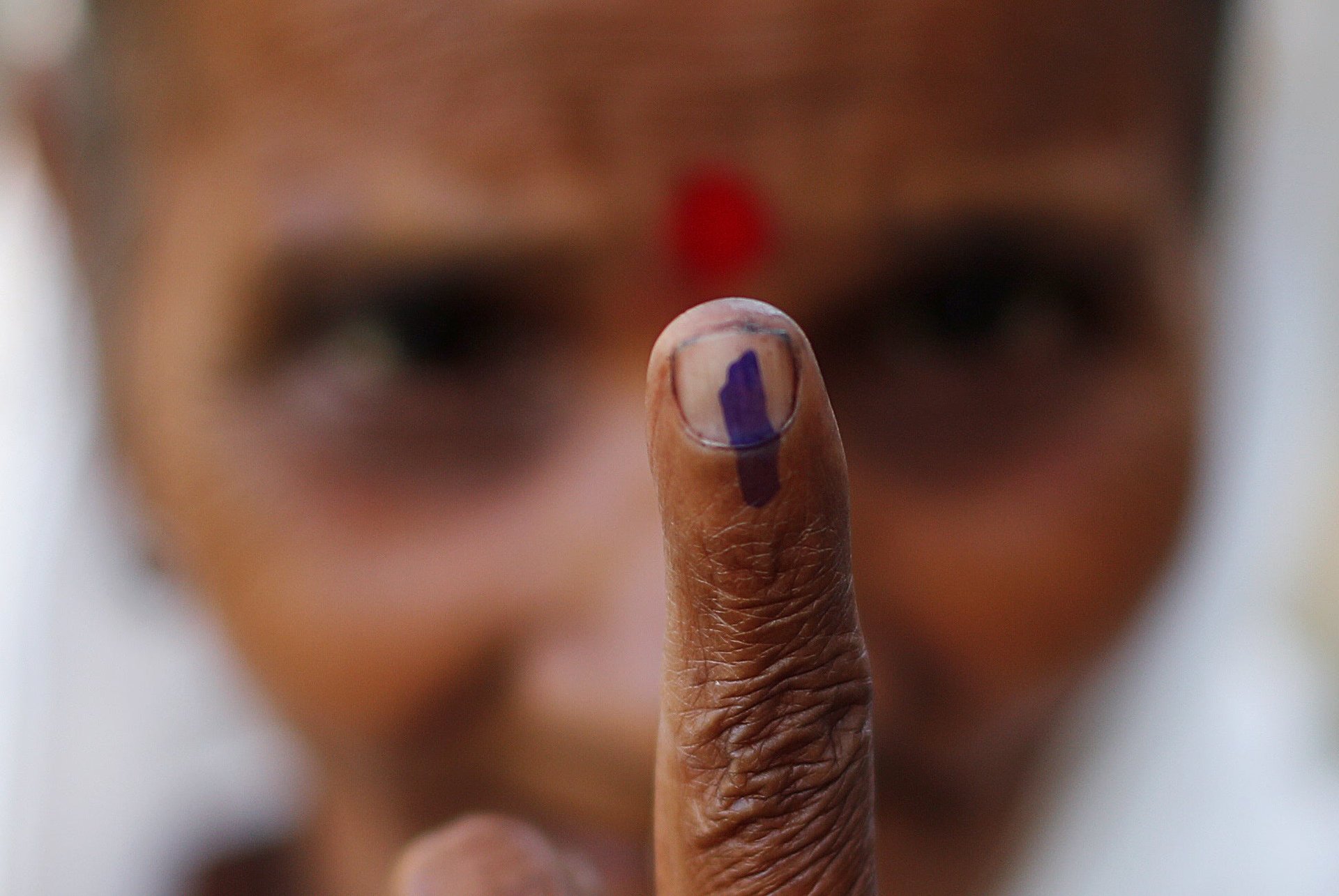The world’s biggest election is about to determine the state of Hindu nationalism
It’s been nearly six weeks since the biggest election in history started in India.


It’s been nearly six weeks since the biggest election in history started in India.
The first votes were cast on April 11 and have been guarded by paramilitary forces since. The last will be cast tomorrow (May 19). On May 23, India will have a new Lok Sabha (lower house of parliament), which will form a government. In all, 900 million voters were called to the polls.
It’s been an intense campaign—vicious, at times. The ruling, Hindu nationalist Bharatiya Janata Party, in particular, unleashed attacks not just on its adversaries (and an assassinated parent, in one case), but also against minorities. Many view its promise to create a nationwide register of citizens as primarily a way to target Muslims, many of whom would be unable to prove citizenship under the scheme. Meanwhile its candidates have stooped to surprising lows, like calling Mahatma Gandhi’s assassin a deshbhakt, or “patriot.”
This is a very different campaign, and political climate, than the one that brought prime minister Narendra Modi to power five years ago. Then, he was welcomed in a landslide as a beacon of economic development, and his Hindu nationalistic past was kept aside, in an uncomfortable precedent.
His brand of nationalism came to power propelled by an economic narrative. His success was the first of a trend: Brexit, Donald Trump, Jair Bolsonaro in Brazil, and Matteo Salvini in Italy came after, all locally tailored expressions of similar political discourses.
But this time, communalism is at the center of the conversation. The government has failed to deliver the quick economic turnaround it promised, and being unable to flaunt great development achievements (despite solid marketing, aided by the spread of fake news), it has resorted to rallying its base through overt Hindu nationalism.
And so, while casting their votes according to their specific, sometimes local needs, Indians have also had to answer a much deeper question: Do they want their country to continue being the secular, multicultural democracy its founders envisioned?
Their answer will show whether they are willing to take Hindu nationalism in lieu of progress and economic improvement, and give a hint on what the future may hold for the other global democracies that will soon be called to answer a similar question.
This essay was originally published in the weekend edition of the Quartz Daily Brief newsletter. Sign up for it here.